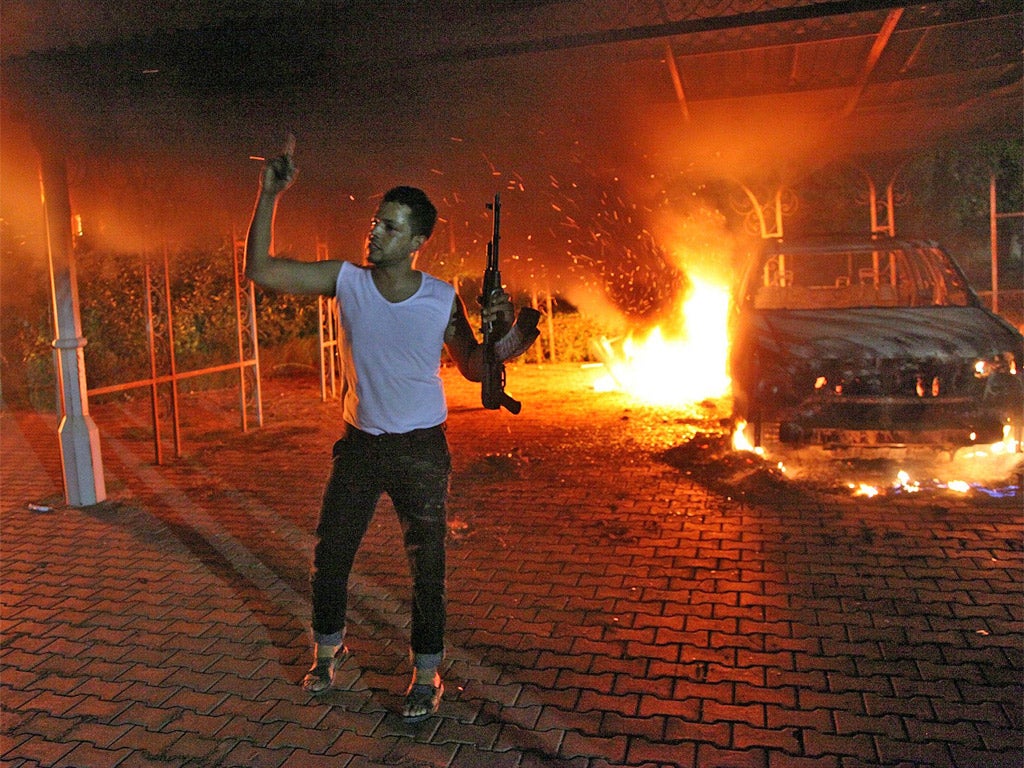Fear and fury: another unholy row about Islam
As anger at an anti-Muslim US film spreads, a controversy is in progress in the UK about academic freedom

Your support helps us to tell the story
From reproductive rights to climate change to Big Tech, The Independent is on the ground when the story is developing. Whether it's investigating the financials of Elon Musk's pro-Trump PAC or producing our latest documentary, 'The A Word', which shines a light on the American women fighting for reproductive rights, we know how important it is to parse out the facts from the messaging.
At such a critical moment in US history, we need reporters on the ground. Your donation allows us to keep sending journalists to speak to both sides of the story.
The Independent is trusted by Americans across the entire political spectrum. And unlike many other quality news outlets, we choose not to lock Americans out of our reporting and analysis with paywalls. We believe quality journalism should be available to everyone, paid for by those who can afford it.
Your support makes all the difference.One is a piece of pop scholarship that attempted to offer historical perspective on the early foundations of Islam. The other is a volatile hatchet job deliberately designed to insult and inflame opinion. But in the past 48 hours, Channel 4's historical documentary Islam: The Untold Truth and the as yet untitled American-made history of Mohamed have thrust Islam back on to the front pages with reports of protests and threats of violence.
The two films could hardly be more different. Tom Holland's documentary, first broadcast last month, took a revisionist approach towards the birth of Islam and questioned whether there was enough contemporaneous evidence to say for sure what exactly happened in Arabia during the 8th century.
The storm of criticism it provoked was largely academic, centering on allegations that Holland had presented a somewhat discredited school of thought as fact with few caveats. But on Tuesday things appeared to turn nasty, when Channel 4 claimed it had to cancel a private screening of the film after receiving "specific and credible" threats.
That evening protests broke out in Egypt and Libya against a little-known, highly Islamophobic portrayal of the Prophet Mohamed that is believed to have been created by a US-based Israeli filmmaker. The film was released in July but only received attention in the Arab world when excerpts of it complete with Arabic subtitles began to surface last week. By the end of the evening the US embassy in Cairo had been attacked while in Benghazi its ambassador and three other staffers lay dead.
More excitable commentators began comparing the reaction to the two films and raising the spectre of global protests created by the Danish cartoons, or the death threats following Salman Rushdie's The Satanic Verses. But while the biography of Mohamed – a crude attack that portrays Islam's founder as a fraudulent child molester – clearly has the potential to raise anger, the reaction to Channel 4's documentary has been considerably more nuanced.
"It's not anger," says Mohammed Ansar, a Muslim commentator who has been a prominent online critic of Mr Holland's documentary. "Anger is what we're seeing in the Middle East. What we've seen in the UK has been much more measured." Inayat Bunglawala, chair of Muslims4UK, agrees. "I have no time for those who say Channel 4 shouldn't broadcast such a programme," he says. "Every broadcaster and historian has the right to examine the historical origins of any faith. But our objections were more about the quality of the documentary itself and the arguments Tom made." The criticisms of Channel 4's documentary have considerable merit. Both Muslim and non-Muslim academics have poured scorn on some of the major conclusions that the 74-minute documentary tried to make – namely that there is not enough evidence to suggest that Mecca is the birthplace of Islam and that the early Arab invaders who conquered the Middle East following the death of Mohamed would not have described themselves as Muslims.
"Holland's work is based primarily on a lot of research that was published in the 1970s," explains Professor Hugh Kennedy, an expert on Middle Eastern history at the School of Oriental and African Studies. "It's interesting and challenging but in the end unconvincing."
More recent scholarship, he argues, has tended to vindicate the narrative laid down by Muslim tradition. "Just because you cannot definitely prove that something happened doesn't mean it didn't occur," he says. "At the same time the Anglo-Saxon invasions of Britain were taking place. We don't have a huge amount of contemporaneous evidence but no one doubts it happened."
For Dr Carool Kersten, an Arabist at Kings College London, the documentary was "an oversimplified hypothesis which touches raw nerves". "It is a complicated story of course and if you don't explain it well then you can expect accusations from within the Muslim community," he said.
But he added that Channel 4's decision to cancel the screening would only fuel tensions. "It's a pity they caved in and pulled the documentary due to scaremongering from a small group of idiots", he said. "This in a way tars the whole community with the same brush."
Channel 4 defended its decision to cancel the screening, meant for academics and journalists at their Westminster headquarters. A spokeswoman would not be drawn on the nature of the threat against them but she insisted it was credible enough to warrant their decision.
Join our commenting forum
Join thought-provoking conversations, follow other Independent readers and see their replies
Comments